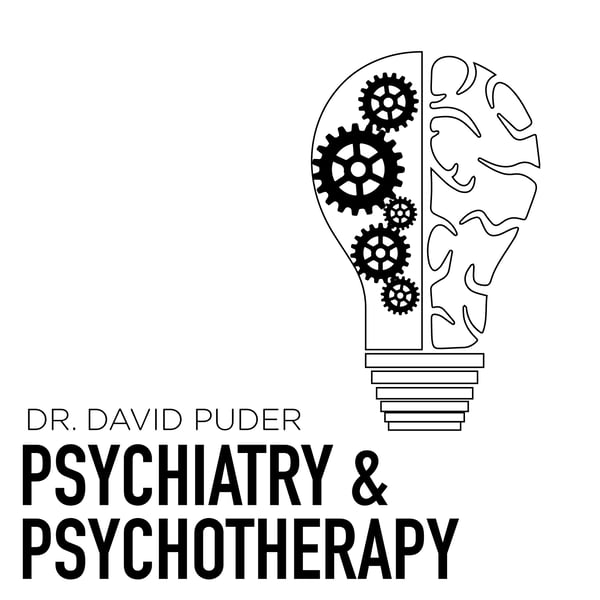Understanding Placebo
Psychiatry & Psychotherapy Podcast
David J Puder
4.8 • 1.3K Ratings
🗓️ 29 November 2018
⏱️ 61 minutes
🧾️ Download transcript
Summary
What is placebo?
The original meaning of the word placebo is, “I will please.” That statement comes from a time when doctors didn’t have our modern code of ethics, and they would prescribe whatever would make the person feel better. They probably had the best intentions, but they also would have known that whatever they were prescribing might not have been a real medication for the symptoms the patient was experiencing.
Doctors, even then, knew that suggestion was powerful, sometimes more powerful than the medicine they were prescribing.
Laypeople who hear the word “placebo” automatically think of sugar pills. They may think only that it’s something a doctor gives to placate and make people feel better when they aren’t getting the active medication. Placebos have long been used as a comparison arm for clinical trials. Usually it is in the form of an inert sugar pill or sham-procedure. Researchers can observe a psychobiological response known as the placebo effect.
But when thinking about the word “placebo,” we must think of the entire effect of it, and it is perhaps better termed “the meaning effect.” As I discussed in last week’s episode of the podcast, the meaning we give something creates belief, and belief is a potent change mechanism, even when it comes to our physical health. It is especially potent when it comes to mental health.
The placebo effect encompasses the therapeutic alliance, expectations, natural healing of the body and mind, and the environment of therapy. It involves the power of suggestion, mood, and the beliefs behind even one positive or negative interaction with a doctor. It also, as we will see, involves studies involving heavy-hitting medication.
When there is an increased ritual, there is an increased placebo effect. During a hospital stay, the surgery preparation, meetings with doctors, nurses and therapists can have an incredibly therapeutic effect on a patient. It is possible to see biological mechanisms triggered by psychosocial context and attribute it to a placebo effect.
What is the power of suggestion, the meaning effect, placebo effect, and how do we use it or avoid it in our practices and when testing new medical treatments?
For the rest of the article, go: here
Link to sign up for CME go: here
Member Login to do CME activity go: here
Instagram: dr.davidpuder
Twitter: @DavidPuder
Facebook:DrDavidPuder
Transcript
Click on a timestamp to play from that location
| 0:00.0 | Welcome to the Psychiatry and Psychotherapy Podcast. The podcast to help you in your journey |
| 0:06.4 | towards becoming a wise, empathic, genuine, and connected mental health professional. |
| 0:11.2 | I'm your host, Dr. David Puder, a psychiatrist who splits his time practicing psychopharmacology, |
| 0:17.1 | individual and group psychotherapy, medical director of a day treatment program, |
| 0:21.2 | medical education research, and teaching residents and medical students. |
| 0:30.0 | Before we start, if you're a professional who eventually needs continued medical education, |
| 0:39.8 | please sign up for the podcast continued medical education yearly membership. |
| 0:43.7 | For each episode, you can take a short quiz and get category one CME and self-assessment CME. |
| 0:50.0 | The podcast receives accreditation through a joint provider ship with UCI, |
| 0:54.5 | who is accredited through the ACCME, meaning these CME credits are good for physicians, |
| 1:00.4 | physician assistants, and nurse practitioners. Further, each episode can apply |
| 1:06.0 | to the MOC Part 2 self-assessment for family medicine, neurology, and psychiatry. |
| 1:11.2 | Other professions like psychologists and nurses can get health care provider certificates |
| 1:17.1 | to submit to their credentialing board to receive CEUs. I have a link in the show notes |
| 1:22.3 | and also at psychiatrypodcast.com. If you have any questions, shoot me an email at dratpsychiatrypodcast.com. |
| 1:32.4 | Welcome to the podcast. This is your host, David Puder. I'm here with Dr. Mark Ard, |
| 1:38.8 | a third year psychiatrist resident at Lomalinda University, |
| 1:43.0 | and tell me what is your current and future post in the AMA? |
| 1:47.8 | Current post is I represent the residents and fellows in California as the delegate |
| 1:54.8 | from the California Medical Association to the American Medical Association. |
| 2:00.3 | Future, we'll see. Okay. Future is probably going to happen when we post this. So what's like |
| 2:06.5 | most likely? I think we set up shop here in California. I play on staying here. So I'll be |
... |
Please login to see the full transcript.
Disclaimer: The podcast and artwork embedded on this page are from David J Puder, and are the property of its owner and not affiliated with or endorsed by Tapesearch.
Generated transcripts are the property of David J Puder and are distributed freely under the Fair Use doctrine. Transcripts generated by Tapesearch are not guaranteed to be accurate.
Copyright © Tapesearch 2025.

